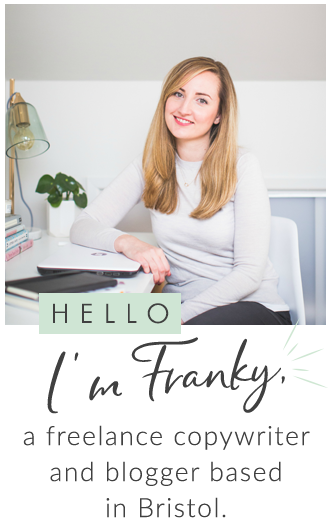Thursday 12th May was World ME Day, a day to focus on learning about, raising awareness of and campaigning around Myalgic Encephalomyeltitis {ME}, sometimes called Chronic Fatigue Syndrome {CFS}. The theme this year was #LearnFromME.
Why should you learn from ME?
People with ME are experts in their own illness and experience. By providing platforms for their voices across the world, we can share their collective expertise. Post viral illness is nothing new. We could learn so much about Long-COVID if we recognised the knowledge and experience we already have from other post-viral illnesses like ME.
I spent the day answering questions on Instagram Stories. There was a lot of value in what I shared, so I decided to give some of it a permanent home on my blog. If you’ve landed here having been recently diagnosed with CFS/ME or Long-COVID, I’m sending you all the love and strength I can muster. I hope the information below is helpful and reassuring.
My Chronic Illness Story
I was diagnosed with Chronic Fatigue Syndrome at the end of 2016. You can read more about the specific circumstances here. Back then, I couldn’t follow people like me. The thought of living with this condition for years and years felt bleak and terrible. And in some ways, it is. You know how everyone talked about being stuck at home during the first lockdown? The relief everyone felt when the world started to open up again? Well, that state wasn’t temporary for people like me.
What do I wish people knew about CFS/ME? Mainly how much it sucks. It turns your world upside down and makes it almost impossible to live a ‘normal’ life. It shifts your whole sense of self and leaves you feeling pretty worthless at times. It’s so much more than being tired. It’s aches and pains, brain fog, and sensitivity to sound and light. It’s feeling dizzy and faint, struggling to speak, and rarely leaving the house. It’s using all your energy to take a shower or needing days to recover after spending an afternoon with friends. It’s unsolicited advice, sceptical doctors, and a complete absence of treatment. There is no cure and I don’t know if I’ll ever recover.
If that sounds bleak, bear in mind I have it easy in comparison to others living with this condition. There are quite literally #millionsmissing from society because of CFS/ME. The disease is more prevalent in women, it affects all races, and has been seen in children as young as five. I wouldn’t wish it on my worst enemy.
If I could go back in time, I would tell myself that life with a long-term chronic illness can also be great. Hard sometimes, but well worth living. I’m a permanently exhausted human AND I’ve achieved a lot. I have a successful business! My kids are happy and healthy! I’m glad I’m here, CFS and all. {And there have been times when I wished I wasn’t, so let’s celebrate that shift}.
There are silver linings to this whole experience. I might even be a better person because of it. Now let’s dive into those questions I mentioned…
-
How did you shift your mindset from feeling bleak to accepting your CFS diagnosis?
Ooof. We’re starting with a big one! It’s taken a lot of work and a long time. Overall, it boils down to two key things:
1. Cultivating more self-compassion. Hating myself and my body, and feeling permanently angry about my situation, was exhausting and a horrible way to live. Making a conscious effort to be kinder to myself and love my chronically ill body has been a big part of my journey.
2. Unravelling myself from everything society tells us about health, disability, productivity, rest, self-worth etc. The inner voice telling me I was useless because I was sick wasn’t my voice, it was the ableist voice of society.
-
What has been most helpful in terms of managing symptoms?
First and foremost, learning to rest.
Before CFS, rest was an alien concept to me. And here’s the biggest lesson: if you reach a point where your body forces you to rest, that’s not rest, it’s recovery. Resting BEFORE we reach capacity is a skill everyone needs to cultivate, chronic illness or not, but for me it’s the difference between managing to function and days spent in bed.
-
Silly question perhaps, but how do you rest?
Not a silly question at all. I find the work of Dr Saundra Dalton-Smith really helpful on this subject. She identifies seven different types of rest.
For me, managing CFS means prioritising a restful life. To be clear, I don’t always achieve this, but that’s the goal. This usually looks like:
– Getting enough sleep. Early nights for the win!
– Taking breaks throughout the day.
– Giving myself enough time to do things slowly.
– Sounds silly, but sitting down. There are so many things we think we have to do standing up. Stirring a pot on the stove? I’m sitting down to do it. Taking a shower? Sitting down.
– Long baths. Being still. Listening to classical music
-
What’s been the hardest thing to deal with?
The hardest days are always, always the ones where I have to say no to doing things with the kids. Whether I’m too sick to leave the house or saving precious energy for something else, it hurts my heart every time.
-
When you have a flare, how do you restore yourself?
When I’m in a flare, I do nothing. Literally. I spend as much time in bed as possible. I sleep a lot. I tend to crave carbs, so I eat a lot of pasta and potatoes. I also take a lot of Epsom salt baths. Mostly it’s doing nothing and waiting for it to pass.
-
How do you schedule work when it’s difficult to predict how you’ll feel on any given day?
It’s taken masses of trial and error. These days, I’ve got a good grasp of my capacity, but I still mess up sometimes and take on too much.
I add generous buffers into my schedule and I have a lot of boundaries around my working hours etc. I’m very honest about the fact there are other copywriters who can turn things around faster than me! I think good communication and managing expectations can go a long way if you need a more flexible schedule due to ill health.
-
Has CFS/ME impacted your mental health?
Definitely. As well as learning to live with a chronic illness, I’ve had to deal with the trauma of my original hospital admission. I feel emotions very physically too. When I’m in a flare, I find it harder to regulate my feelings and things like sadness, grief and anger can make my symptoms worse.
Supporting my mental health is a big part of my self-care routine. I had some CBT just after I was first diagnosed and found it very helpful. I still use some of what I learned during those sessions today.
-
I know your husband travels a lot for work. How do you cope when he’s away?
With great difficulty. If he’s away for a couple of nights, I can usually push through and recover once he gets home, but long overseas trips are more challenging. We tend to have a few weeks’ notice, so we try to prepare as much as possible. I meal plan well in advance and make sure the freezer is stocked with easy meals. Once he’s away, I enlist the help of friends and family to give me a few days off. My main survival tactic is to do evenings early. I’m pretty useless after 7pm, so we eat around 5pm and reset ready for the next day. I try to be in bed by 9pm {and it’s usually more like 8.30pm}.
-
Does having a good diet help you cope?
I think it helps me cope in that what I eat is something I can control. Eating well also feels like an important act of self-care. I do believe switching to a vegan diet a few years ago made a difference to some of my symptoms. However, I’ve never seen a nutritionist and it’s not something I feel particularly educated on. In general, I eat what I like. I just happen to really like fruit, vegetables and salad!
-
Which, if any, alternative treatments have you explored?
I’m always a little wary of talking about ‘treatments’ online because I know how overwhelming and all-consuming that particular rabbit hole can be. I also understand why so many of us fall down it. This condition desperately needs more research and funding.
At the moment, I’m taking a handful of daily supplements and trying to see an osteopath as regularly as I can afford to. I’ve dabbled in other things over the years, but nothing has been the magic cure I’ve wanted it to be.
- I hope you’ve found this post helpful. Over the years, I’ve been invited to share my story on a few podcasts. If you’re looking for more information, particularly about running a business while chronically ill, you may want to give them a listen.
- Fiercely Freelance – How to Work With Chronic Fatigue
- The Co-Working Club – Running a Business Alongside a Chronic Illness
- Body Cons – Chronic Fatigue Syndrome and Hopes After Lockdown
- Ask The Therapist – Managing & Living with Chronic Fatigue Syndrome
Love Audrey xxx



